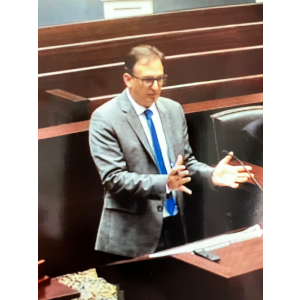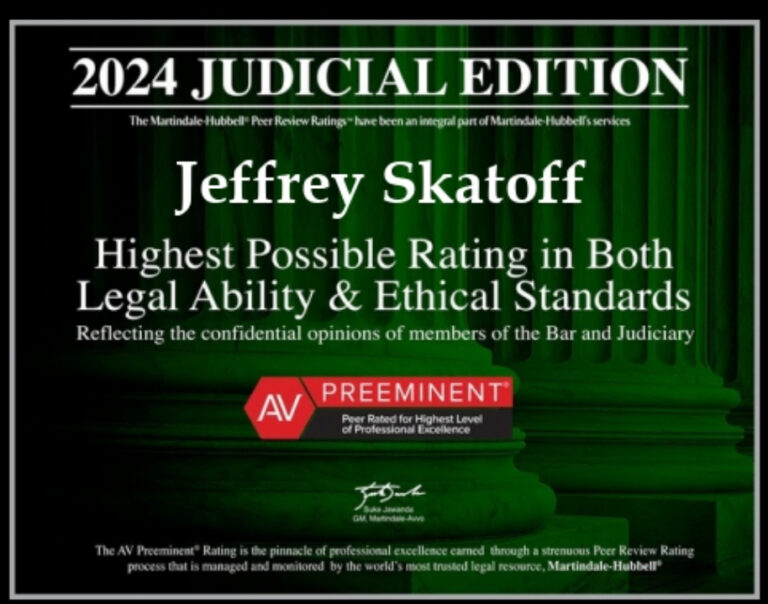A guardianship case is conducted through the circuit court of the county where the ward resides. Like any other court proceeding, there are lawyers involved, which means legal fees. Every guardianship case will involve a lawyer for the petitioning party and a lawyer for the alleged incapacitated person (“AIP”), typically but not always court appointed. If a guardian or emergency temporary guardian is appointed, that person will be required to have an attorney. In a litigated case, other family members or interested persons will also have a lawyer. Given the differing roles involved, there are different rules that apply for paying attorney fees for lawyers in each such role.
Court Appointed Lawyer for the Alleged Incapacitated Person
Section 744.331 requires the court to appoint an attorney for the AIP. Under Section 744.331(7), the court is required to award a reasonable attorney fee to the AIP’s attorney:
(7) FEES.—
(c) If the petition is dismissed or denied:
Ward’s Attorney After Finding of Incapacity
744.108 Guardian and attorney fees and expenses.—
Lawyer for Guardian
The lawyer for a guardian is entitled to attorney fees under Section 744.108(1).
Lawyer for Petitioning Party
The petitioning party is not automatically entitled to fees from the guardianship estate, but must meet the definition of providing services “on the ward’s behalf.” Such will necessarily involve a fact-intensive inquiry. However, if the petition for incapacity is granted, and most certainly if a guardian is appointed, the petitioning party will have provided service on behalf of the ward.
If there is subsequent litigation, the court would be required to determine whether the litigant was acting on behalf of the ward or in furtherance of some other agenda.
Other Interested Persons
If family members of other interested persons litigate in the guardianship dispute during or after appointment of a guardian, again, the issue is whether the attorney was actually acting to further the interests of the ward or some other purpose.
Reasonableness
Section 744.108(2) sets forth criteria that a circuit court must consider in determining reasonable attorney’s fees. They are:
(a) The time and labor required;
(b) The novelty and difficulty of the questions involved and the skill required to perform the services properly;
(c) The likelihood that the acceptance of the particular employment will preclude other employment of the person;
(d) The fee customarily charged in the locality for similar services;
(e) The nature and value of the incapacitated person’s property, the amount of income earned by the estate, and the responsibilities and potential liabilities assumed by the person;
(f) The results obtained;
(g) The time limits imposed by the circumstances;
(h) The nature and length of the relationship with the incapacitated person; and
(i) The experience, reputation, diligence, and ability of the person performing the service.
Procedure
All fee petitions must be accompanied by an itemized description of the services performed for the fees and expenses sought to be recovered. The petition must also include the period covered and the total amount of all prior fees paid, or costs awarded to the petitioner in the guardianship proceeding currently before the court.
Abuse of Discretion
A court’s award of fees and costs is subject to a review under an abuse of discretion standard. In Pierre v. In Re: Guardianship of Rodney Brown, Case No. 3D13-1503 (Fla. 3d DCA July 8, 2015), the Third District held that the trial court’s award of fees and costs, which significantly reduced the award sought by the ward’s successor guardian and trustee, was not an abuse of discretion.
In Pierre, the ward was declared incapacitated in 2006 and was initially a ward of the Guardianship Program of Dade County. An initial guardian and trustee of the ward secured assets for the ward which resulted in a deposit of $150,000 into a trust for the ward. Real property was accumulated and let out to provide the ward rental income. Later, in 2009, the initial guardian was awarded $100,000 in fees.
The following year appellant was substituted as trustee of the ward’s assets. The opinion provides that the appellant did not obtain control over the estate until 2011. Around this time, the initial guardian filed an additional petition for fees and was subsequently awarded $105,250.93 in fees and $1,800 in expert witness fees. It was later ascertained by the successor guardian that the estate was deficient in tax filings. In short, the two fee awards to the initial guardian constituted all of the liquid assets collected on behalf of the ward. All that remained in the ward’s estate was between $40,000 and $75,000 in cash and the home from which the ward collects his rental income.
Following his substitution as successor guardian of the ward’s person and property, the appellant sought fees and costs incurred in his capacity as guardian and trustee. The trial court reduced significantly the amount of fees sought. Even though the successor guardian and trustee was in no way responsible for the reduced status of the estate the ruling was affirmed on appeal by the Third District.
This decision serves as another reminder that the appellate courts give great deference to decisions of the lower courts in trust and guardianship matters. When fees are sought by the guardian and trustee the appellate courts are loathe to reverse such a finding and order absent an abuse of discretion.
FAQ
Can anyone object to a fee petition?
Yes, any interested person in the guardianship proceeding has standing to object to a fee award.
Can the attorney get “fees on fees” in seeking the award of fees?
Yes. Attorneys are entitled to fees incurred in seeking fees. The original fees petition must be reasonably successful, however.
Can a party be made to reimburse another party for their fees?
Yes, if bad faith can be proven. If the original incapacity petition was brought in bad faith, the petitioning party can be found liable for attorney fees incurred by the AIP, pursuant to Section 744.108(1). Also, as in any proceeding, fees can be awarded against any litigant for proceeding in bad faith, in any guardianship proceeding.
The Third District, in Goldman v. EO Goldman, 3D14-0098 (Fla. 3d DCA June 17, 2015), reversed an award of attorneys’ fees as a sanction in a Florida guardianship action because the trial court abused its discretion in granting the award without an express finding of bad faith conduct. The express finding “must be supported by detailed factual findings describing the specific acts of bad faith conduct that resulted in the unnecessary incurrence of attorneys’ fees.” Id. (quoting Moakley v. Smallwood, 826 So. 2d 221, 227 (Fla. 2002)). Under the Supreme Court’s framework outlined in Moakley, the amount of the attorneys’ fees award must be directly related to the attorneys’ fees and costs the adversary has incurred as a result of the “specific bad faith conduct of the attorney” and requires notice as well as an opportunity to be heard. The Court also relied on T/F Systems, Inc. v. Malt, which interpreted Moakley, to hold that the procedures for imposing a sanction award of attorneys’ fees are equally applicable as to an attorney or a party. 814 So. 2d 511, 513 (Fla. 4th DCA 2002). Therefore, where the guardianship trial court failed to make a specific finding regarding bad faith conduct as to each party or attorney, reversal of the fees award was required.








